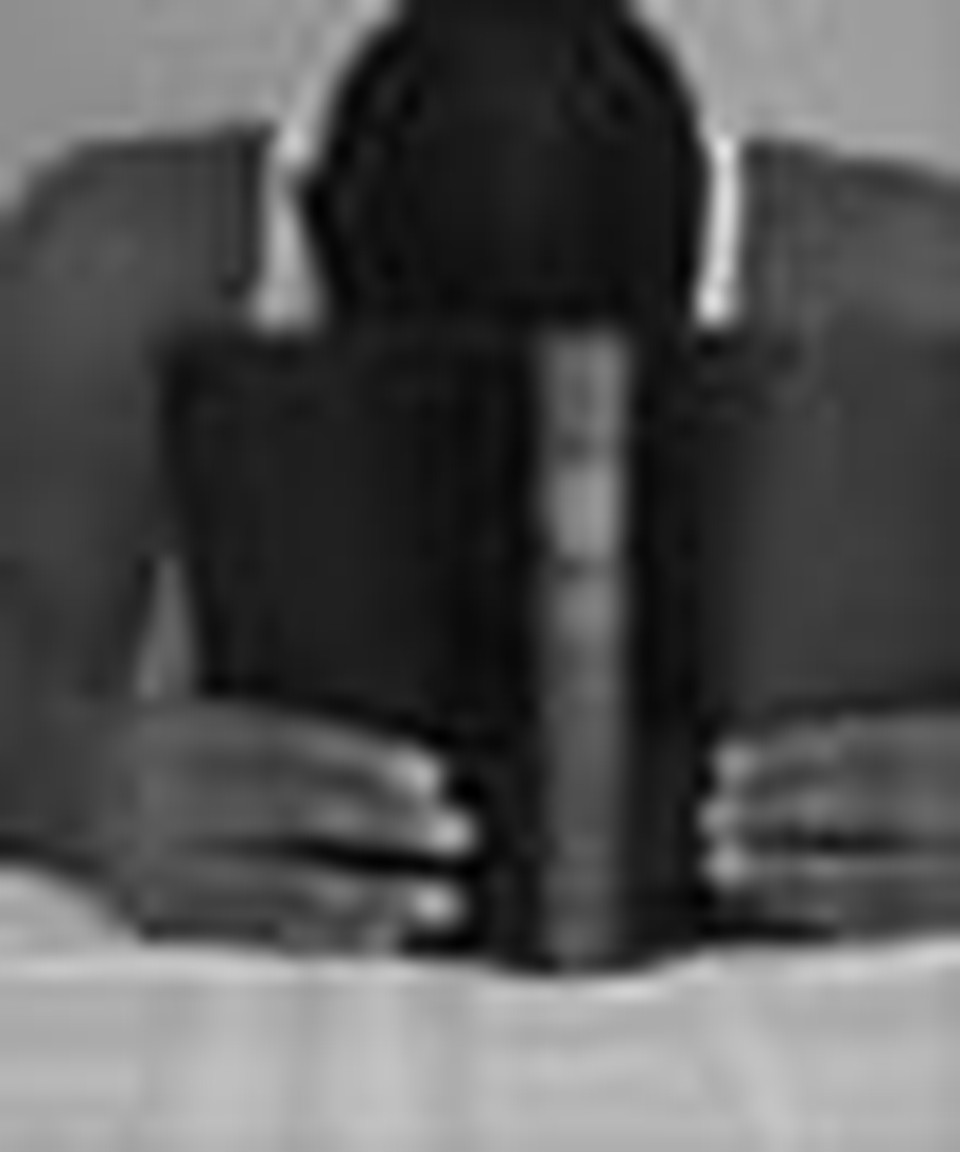Doubt: The Darker Side of Faith

I "get" doubt, both as an external observer and as an experienced participant. In both my professional and personal life, I continue to have opportunities to serve as an "apostle to the skeptics," and I've struggled with the darker side of faith for a number of years as well.
Why call doubt the “dark” side of faith (as if one could become some sort of “Christian Sith”)? Because when we are in the dark, we can’t see clearly. We are in the midst of the unknown. And often we stumble about as we try to move. Doubt is like that. And the way many Christians respond to doubt does not help either.
"Doubting Thomas!" Generally this epithet is considered derogatory in Christian circles, which really is a shame. Yet doubters are in good company. For example, C.S. Lewis also struggled with doubt. The period of time after the death of his wife, Joy Gresham, was intensely painful, as chronicled in A Grief Observed. [1]
I know that some well-meaning Christians will say, “You just need faith.” But I caution anyone who has considered saying such. The rational questioner will translate your message: “Forget the evidence. You just need to be a fool.”
Without meaning to sound trite, I have found two doubts and two affirmations that have encouraged me when I doubt. I often share some (or all) of these points when students come to me who are struggling with faith issues. So here are two things to doubt and two things to know.
First, doubt that having doubts is wrong. (Translation: It's OK to have doubts.) The process of doubt is how we come to know things. Remember when you didn't believe the stove was really hot until you touched it, or when you spared yourself some heartache when you doubted another person's sincerity? Doubt can be both educational and beneficial.
Sometimes we equate doubt with having difficult questions. Actually, painful questions are part of faith. The Bible itself asks hard questions, often making painful observations. For example, during my sophomore year in college I went through a season of questioning, and thought that reading Ecclesiastes would help (since it is considered part of the “wisdom literature” of the Hebrew Bible). Not a good idea. I ended up in a deeper funk.
To the book’s credit, Ecclesiastes 3 inspired an awesome song by the Byrds (“Turn, Turn, Turn”). And yes, the book ends with some great aphorisms (“Remember your Creator in the days of your youth” – Ecclesiastes 12:1, and “Fear God and keep his commandments for this is the whole duty of man” – Ecclesiastes 12:13). But in my defense, Ecclesiastes also has some real downers, like “And I thought the dead who are already dead more fortunate than the living who are still alive” (Ecclesiastes 4:2) or “There is an evil in all that is done under the sun, that the same event happens to all. Also, the hearts of the children of men are full of evil, and madness is in their hearts while they live, and after that they go to the dead” (Ecclesiastes 9:3). All that sounds like life is just suffering and then you die. Bummer.
So here is the deal – if the Bible includes passages that struggle with life’s difficulties, why should we be surprised when humans still struggle with these same issues? More to the point, how can someone condemn a person who walks through the same shadowy places as the human authors of scripture?
Instead of condemning those who struggle, I conclude doubt is part of the life of faith.
Second, doubt your doubts as well as your beliefs. Often we doubt because we are trying to be objective. So if you really want to be objective, or "open minded," you must be just as willing to doubt your doubts as to doubt your beliefs. That is one piece of advice I got in college which really helped me navigate my own difficult questions.
And no wonder college is a time of doubt for many students. College is a chance to explore new ideas, new models of reality. [2] To fully explore this terrain, a measure of open mindedness really is necessary. Also, any time a person learns a new skill, a season of awkwardness goes along with the new skill. However, as one practices that skill, the awkwardness fades. It is the same with the life of the mind. Exploring non-Christian models of reality will be awkward, painful, and even doubt-inducing. But as one continues to think critically, he is able to sort the wheat from the chaff.
Next, know some smart Christians. A common argument against Christian faith is that its adherents are idiots. Admittedly, some are. However, there are also a number of intelligent people who believe the resurrection of Christ actually happened. Some of these include Ravi Zacharias, William Lane Craig, J.P. Morgan, Peter Kreeft, C.S. Lewis, and others. But what makes this argument even more impressive is that not all who believe in Christ's resurrection agree on other details, like creationism. I think this actually underscores the resurrection’s believability. Why? Because people who may disagree on certain points of Biblical interpretation do agree with the fact of the resurrection. Notable scientific thinkers include Francis Collins [3] and John Polkinghorne. [4]
For some readers, these authors will provide new models of reality. These models will comfort some, and they will make others uncomfortable. That is to be expected. But there is an advantage of reading through the work of intelligent believers who have navigated paths through sometimes threatening non-Christian models of reality. How so? The Christian thinkers have already done the hard work of clearing a path. Those of us who follow behind may still find some places difficult to trod, but on other parts of the journey we may simply enjoy the view.
And know that you are in good company. A number of Biblical heroes had their own struggles with doubt [5] as well as the sometimes infamous disciple Thomas. And this brings us full circle, back to the beginning of the article. I take comfort knowing that other believers have asked similar questions. And if my first assertion is correct that doubt is one of the ways we learn about the world around us as we grow, then of course a growing believer will have doubts. Take heart, your doubts are a sign of your willingness to grow.
Here is an application for church leaders: I encourage pastors to make the congregation aware of others who have journeyed through doubt’s sometimes-dark valleys. Rather than ostracizing sometimes-doubting Christ followers for not having enough faith, please have the foresight to congratulate their intellectual honesty, and let them be a sounding board for others who are asking difficult questions. And when someone comes to you with a question you can’t easily answer, then please, for the love of genuine growth, do not answer “You just need faith.”
Recommended Reading
Bruce, F.F. The New Testament Document: Are They Reliable? Since the New Testament is our primary source for the life, death, and resurrection of Jesus, their reliability is crucial. Bruce defends the New Testament’s veracity in about 120 pages.
Lewis, C.S. Mere Christianity. In this book, Lewis attempts to present basic Christian beliefs to a non-Christian Britain. That means he can’t take Christian beliefs for granted. Lewis demonstrates a more objective approach to faith.
McGrath, Allister. The Passionate Intellect. McGrath collects a variety of arguments for Christian faith, none of them are particularly new, but he does provide a good single-volume resource for basic apologetics.
Psalm 73. The psalm recounts the movement of a believer through doubt toward renewed faith.
Strobel, Lee. A Case for Christ. Strobel’s book puts Jesus (and the sources claiming his existence) to a series of tests. Though Strobel only interviews Christian experts, he still provides a good starting point for answering hard questions.
Stanley J. Ward is the Director of Campus Life and Ministry at The Brook Hill School in Bullard, TX. He is also author of Worldview Conversations: How to Share Your Faith and Keep Your Friends.
[1] Warning: if you are a Lewis fan looking for something akin to the Narnia books, this one is not the book for you. And for those of you who want to encourage someone in their own dark night of the soul, this probably is not the book either. (Although when Lewis published the book under a pseudonym – N.W. Clerk – several of his friends gave him copies of the book thinking it would help).
[2] The “models” argument borrows from C. S. Lewis, as mentioned in his book An Experiment in Criticism.
[3] Collins is the former director of the human genome project, and he is now director of the National Institute of Health.
[4] Polkinghorne won a Nobel prize for his work on religion and science.
[5] See John the Baptist’s question to Jesus in Matthew 11:2-3; John’s father, Zechariah’s doubt in Luke 1:18, and even the Bereans’ challenging Paul and searching the scriptures in Acts 17:11, an attitude which would hopefully challenge a few modern cults.
Originally published March 05, 2012.




